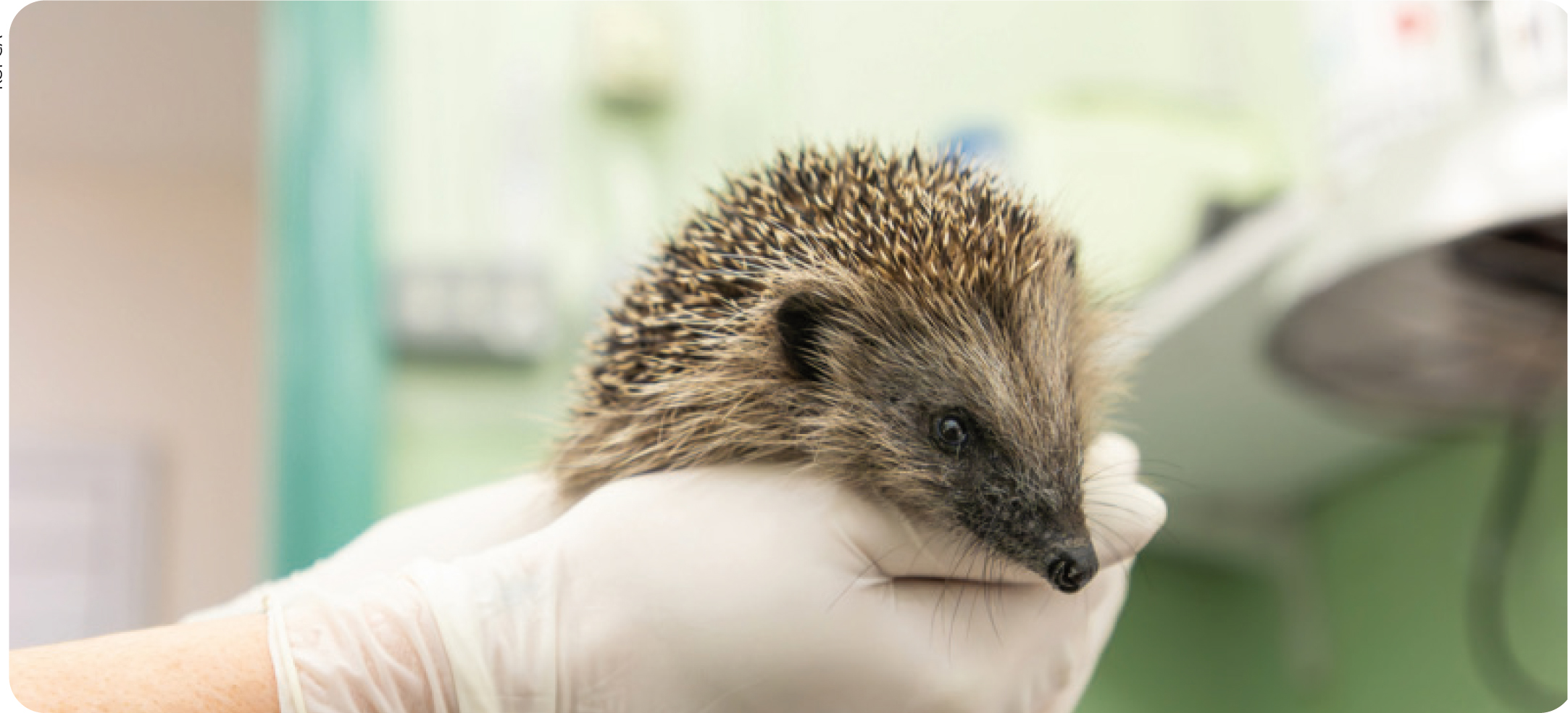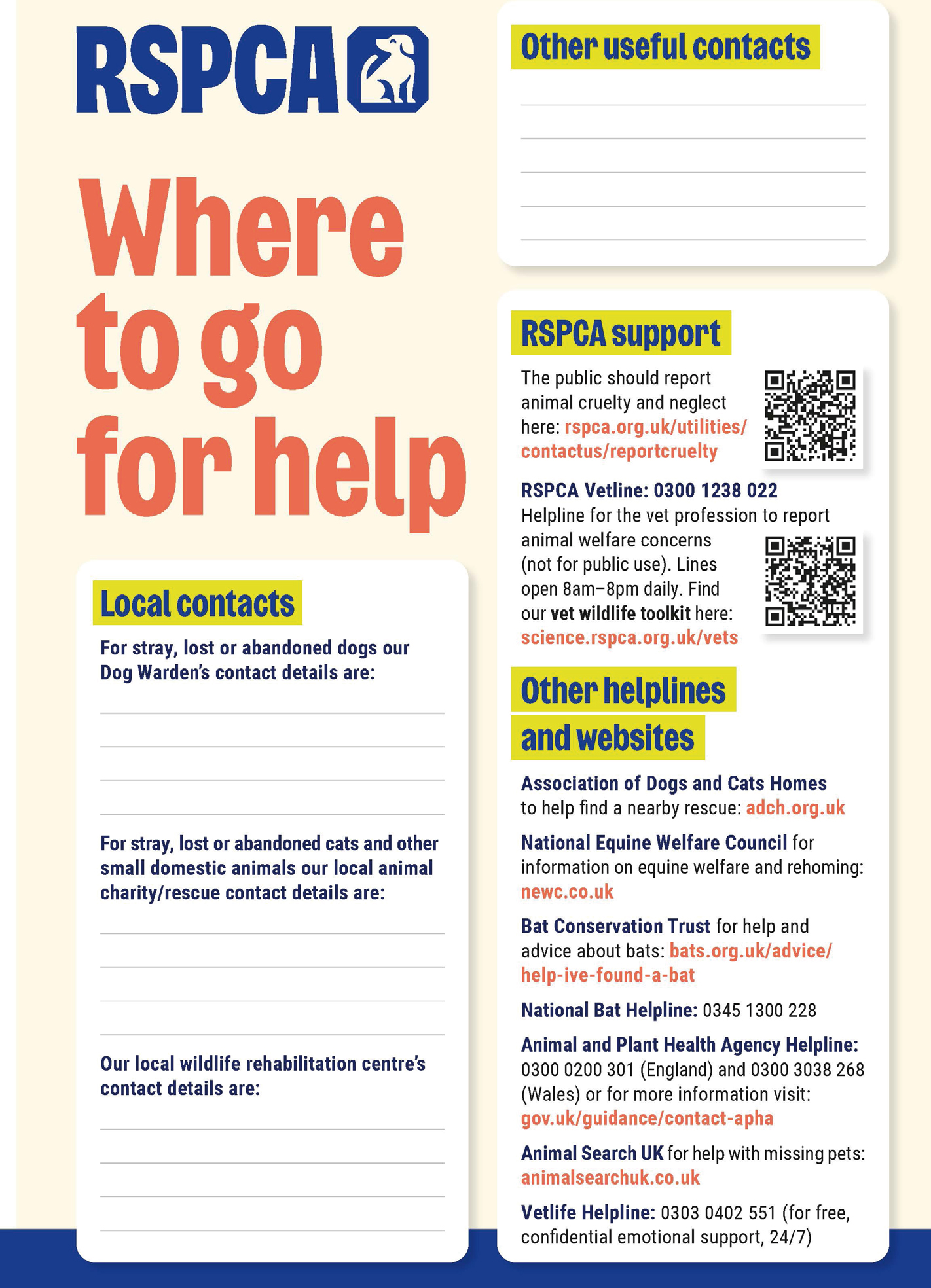
As a veterinary nursing professional with many years of experience, I have seen a wide range of cases, from routine postoperative checks to emergency presentations. However, one area that often feels both rewarding and challenging is wildlife casualties. I am sure many of us have experienced a knowledge gap when dealing with these unique patients. The new RSPCA Wildlife Toolkit has arrived, and it is a welcome addition to every veterinary nurse's resource kit. While it is especially useful during this time of year when baby birds are commonly seen, it is also an essential resource beyond the spring season, providing invaluable guidance and support throughout the year.
The growing need
Each year, the RSPCA receives thousands of calls relating to wildlife in need of care. In 2024 alone, the charity's four national wildlife centres admitted 10 210 animals.
The RSPCA recognise that wild animals require expert care to maximise their chances of survival. Veterinary surgeons, nurses and wildlife rehabilitators each have an important role in providing support to injured and orphaned wildlife.
We are urging the general public to step up for animal welfare, recognising that we can all play an important part in helping to get wildlife casualties the best care as soon as possible. Where it is safe to do so, we encourage finders to transport the animals to a veterinary practice to get them the help they desperately need as quickly as possible.
Animals brought in by members of the public are often treated more quickly, which also allows the RSPCA's frontline teams to focus on their cruelty and neglect caseload—work that only they can carry out.
Wildlife casualties frequently present in a critical condition and require care that differs significantly from standard domestic protocols. It is often registered veterinary nurses (RVNs) who advocate for these animals, working to deliver high standards of care.
Far from being rare, wildlife cases are now a routine part of practice life, yet many veterinary nurses still report feeling underprepared to manage them.
At the BVNA Congress 2024, feedback from over 270 veterinary professionals highlighted a strong demand for resources related to wildlife care. RVNs and other practice staff identified the need for practical tools, such as wildlife first aid guides, triage flowcharts and species-specific treatment protocols.
Among the most urgent requests were comprehensive contact lists for local wildlife rehabilitation centers and rescue organisations, all vital networks for managing injured and orphaned wild animals. Specific attention was drawn to hedgehog care and other frequently encountered native species, along with requests for clear drug recommendations and husbandry guidelines tailored to the unique needs of wildlife patients.
Encouragingly, 66% of respondents reported having a wildlife policy in place. While this provides a good foundation, there remains a clear opportunity to develop a more unified, prepared and compassionate approach to wildlife care across veterinary settings. The RSPCA Wildlife Toolkit has a key role to play in enabling that shift.
The elephant in the room
Wildlife is the responsibility of all veterinary professionals—not just wildlife centres and rehabilitators. Practices have both a moral and professional obligation to provide care.
As the RCVS states: ‘When ill or injured wildlife is presented to a practice for treatment, the usual Code of Professional Conduct (Code) obligations around 24-hour emergency first aid and pain relief apply. This means that veterinary surgeons and veterinary nurses in practice must either provide the care themselves, or facilitate the provision of first aid and pain relief elsewhere. The provision includes the use of euthanasia, where appropriate. It is not acceptable, and is contrary to regulatory obligations, to unreasonably refuse to provide or facilitate emergency treatment for wildlife.’
The RSPCA's For Every Kind strategy calls on every kind of person to be kind in every possible way to every kind of animal. This inclusive approach recognises the value of compassion and professional care, regardless of species. It involves doing what we veterinary nurses excel at: utilising our compassionate skills to advocate for every animal in our care. While wildlife cases can be clinically demanding, time-intensive and financially burdensome, the toolkit helps practices by offering clear guidance for triage, assessment and stabilisation. It does not expect practices to undertake long-term rehabilitation, but supports timely and appropriate decision-making.
Why the toolkit matters
The RSPCA Wildlife Toolkit is a comprehensive resource created by veterinary professionals for veterinary professionals. It focuses on the realities of wildlife care, from safe handling and triage to species-specific protocols and decision-making.
Justine Shotton, head veterinarian for wildlife and exotics at the RSPCA, explains: ‘Veterinary practices do an amazing job caring for sick and injured wild animals brought in by members of the public and rehabilitators, providing appropriate first aid, pain relief and euthanasia under the RCVS Code.’
Key features of the RSPCA Wildlife Toolkit include:
The website also offers an interactive training course, Wildlife Rehab – the first 24 Hours, which covers the essential principles of wildlife care during the initial period after rescue. This CPD-accredited course is a helpful refresher and complements the rest of the platform's content.
The role of the veterinary nurse
RVNs play a central role in wildlife care. They are often the first point of contact when wildlife is brought in; they are responsible for the initial assessment, triage and stabilisation.
Their clinical skills—particularly in recognising subtle signs of distress, administering medications and delivering supportive care—are critical. But it is their compassion and dedication that truly distinguish their contribution.
The Wildlife Toolkit empowers RVNs to manage wildlife cases more effectively, bridging the gap between domestic and wild animal care. It reinforces the professional obligation to provide support to all creatures.
Looking ahead
The launch of the RSPCA Wildlife Toolkit marks a positive step forward. It reflects growing recognition of the importance of wildlife care in veterinary practice and the key role played by both vets and RVNs.
The toolkit is not just a resource; although bookmarking the website on your computer and printing the poster (Figure 1) for the treatment room wall is a great idea, it allows us to concentrate our efforts on achieving positive animal welfare outcomes.

I encourage every RVN to explore the toolkit and embrace the opportunity to provide the best possible care for wildlife casualties. Together, we can ensure that no animal is turned away and that wild animals receive the compassion and care they deserve.


